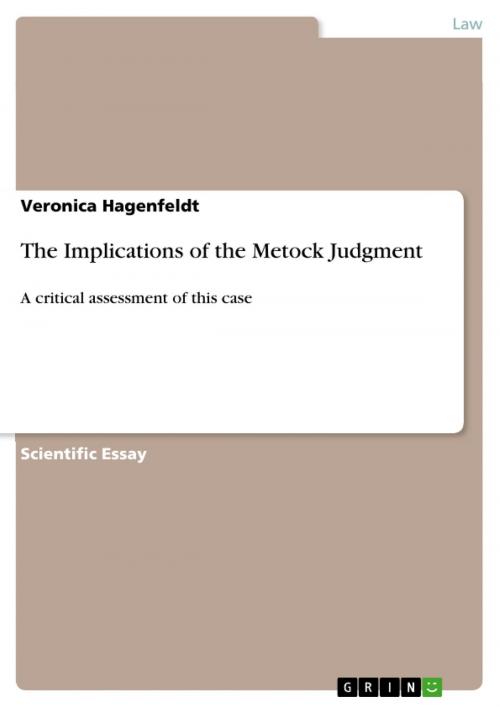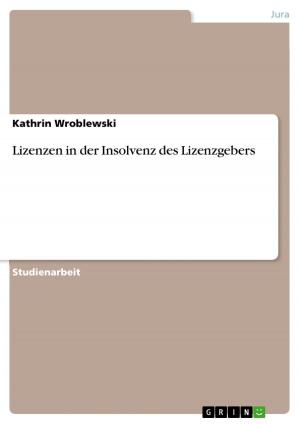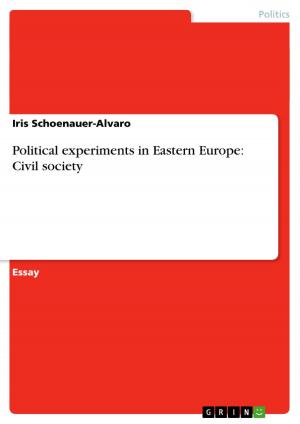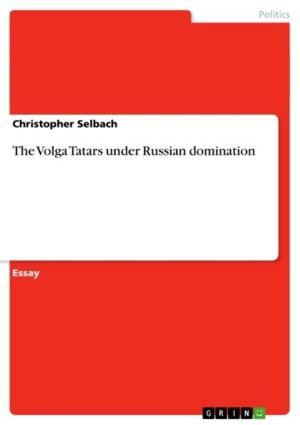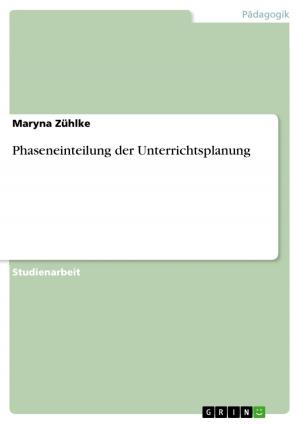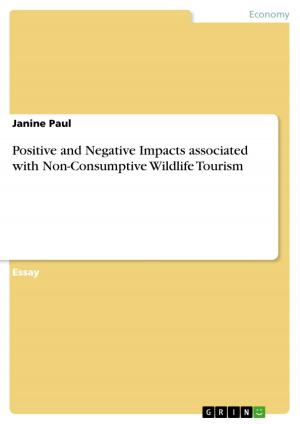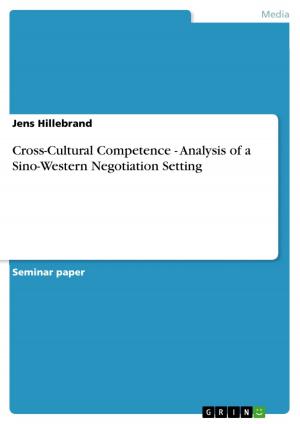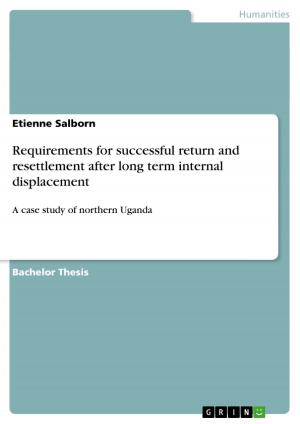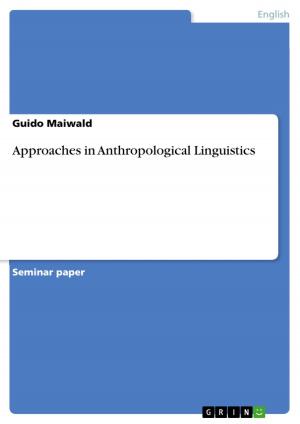The Implications of the Metock Judgment
A critical assessment of this case
Nonfiction, Reference & Language, Law, Criminal law| Author: | Veronica Hagenfeldt | ISBN: | 9783640880676 |
| Publisher: | GRIN Publishing | Publication: | March 30, 2011 |
| Imprint: | GRIN Publishing | Language: | English |
| Author: | Veronica Hagenfeldt |
| ISBN: | 9783640880676 |
| Publisher: | GRIN Publishing |
| Publication: | March 30, 2011 |
| Imprint: | GRIN Publishing |
| Language: | English |
Scientific Essay from the year 2009 in the subject Law - Penology, University of Edinburgh (School of Law), course: EU Immigration and Asylum Law, language: English, abstract: The landmark Metock judgement followed the lawsuit of four third-country nationals (TCNs) who unsuccessfully applied for asylum in Ireland, but who married migrant EU citizens living in Ireland and applied for a residence card as the spouse of an EU citizen. At the time Irish national laws made the right of residence for third-country family members contingent on prior legal residence in another EU Member State, and the applicants' requests were ultimately denied since the requirement was not met. The four couples subsequently lodged an appeal, arguing that the laws were incompatible with Directive 2004/38 and that the decision represented a breach of EU freedom of movement law. In its judgment, the ECJ ruled that the Directive is in fact not conditional on the prior legal residence of third-country family members, and it went even further in stating that it was irrelevant 'when and where their marriage took place and [...] how the national of a non-member country entered the host Member State.' The central importance of Metock is thus twofold: first, the ECJ's ruling establishes that EU laws preclude stricter immigration standards applied on a national level and, second, the Court further extends the rights of third-country family members. Part I of this paper contextualises the Metock ruling by examining the legal evolution of the ECJ case law within the area of third-country family members' freedom of movement rights. It identifies and analyses the evident trend of the Court significantly extending the rights granted to non-EU family members. Two key manifestations of this central trend will be investigated and exemplified, namely how the Court grants more extensive rights to non-EU family members by means of interpreting Community law expansively and, second, the Court's move away from economic reasoning towards fundamental rights-based legal rationale. Part II critically assesses the seminal Metock ruling and analyses both its real and potential implications. In particular, three implications will be explored: how the ruling signifies yet a further extension of EC law regarding third-country family members' rights; the clearer delimitation of competences between the member states and the Union within the area of Community immigration; and the potential increase in the risk of abuse and rise in illegal immigration.
Scientific Essay from the year 2009 in the subject Law - Penology, University of Edinburgh (School of Law), course: EU Immigration and Asylum Law, language: English, abstract: The landmark Metock judgement followed the lawsuit of four third-country nationals (TCNs) who unsuccessfully applied for asylum in Ireland, but who married migrant EU citizens living in Ireland and applied for a residence card as the spouse of an EU citizen. At the time Irish national laws made the right of residence for third-country family members contingent on prior legal residence in another EU Member State, and the applicants' requests were ultimately denied since the requirement was not met. The four couples subsequently lodged an appeal, arguing that the laws were incompatible with Directive 2004/38 and that the decision represented a breach of EU freedom of movement law. In its judgment, the ECJ ruled that the Directive is in fact not conditional on the prior legal residence of third-country family members, and it went even further in stating that it was irrelevant 'when and where their marriage took place and [...] how the national of a non-member country entered the host Member State.' The central importance of Metock is thus twofold: first, the ECJ's ruling establishes that EU laws preclude stricter immigration standards applied on a national level and, second, the Court further extends the rights of third-country family members. Part I of this paper contextualises the Metock ruling by examining the legal evolution of the ECJ case law within the area of third-country family members' freedom of movement rights. It identifies and analyses the evident trend of the Court significantly extending the rights granted to non-EU family members. Two key manifestations of this central trend will be investigated and exemplified, namely how the Court grants more extensive rights to non-EU family members by means of interpreting Community law expansively and, second, the Court's move away from economic reasoning towards fundamental rights-based legal rationale. Part II critically assesses the seminal Metock ruling and analyses both its real and potential implications. In particular, three implications will be explored: how the ruling signifies yet a further extension of EC law regarding third-country family members' rights; the clearer delimitation of competences between the member states and the Union within the area of Community immigration; and the potential increase in the risk of abuse and rise in illegal immigration.
